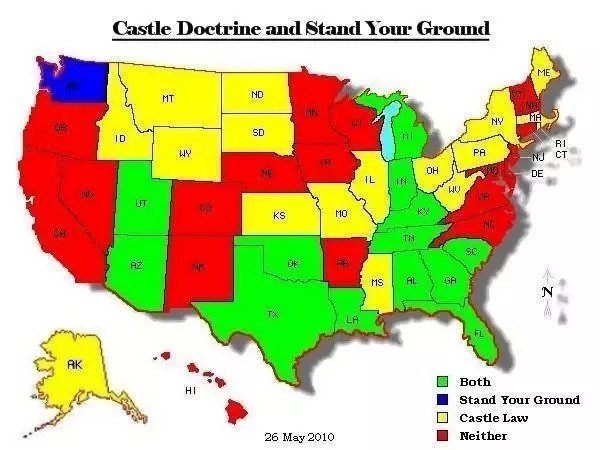Yes, Alabama has a Stand Your Ground law. Enacted in 2024, Alabama’s Stand Your Ground law, officially known as the “Castle Doctrine,” is codified under Alabama Code Section 13A-3-23. This law provides individuals with the right to use deadly force in self-defense or the defense of others without any duty to retreat.

Key Provisions of Alabama’s Stand Your Ground Law:

No Duty to Retreat: Individuals are not legally required to retreat or attempt to flee from a dangerous situation before using deadly force in self-defense. They can stand their ground and use reasonable force to protect themselves or others.

Immunity from Prosecution: The law provides immunity from prosecution for individuals who use deadly force in self-defense or defense of others if certain conditions are met. These conditions include:
- The use of deadly force is believed to be necessary to prevent imminent death or serious bodily harm to the individual or another person.
- The individual reasonably believes that retreat is not a safe option.
- The individual is not engaged in unlawful activity at the time of the incident.
Affirmative Defense: If an individual is prosecuted for using deadly force in self-defense, they can assert the Stand Your Ground law as an affirmative defense. This means that the burden of proof shifts to the prosecution to disprove the elements of the defense.
Castle Doctrine: The law extends the right to self-defense to a person’s home, vehicle, or other place where they have a right to be. Individuals can use deadly force to protect themselves against intruders or unlawful entries without any duty to retreat.
Important Considerations:
Reasonable Belief: The Stand Your Ground law requires a reasonable belief that deadly force is necessary and that retreat is not a safe option. The reasonableness of the belief is determined based on the totality of the circumstances and is ultimately a question for the jury to decide.
Duty to Avoid Confrontation: While individuals are not required to retreat, they do have a duty to avoid confrontations and escalate situations. If there is an opportunity to disengage or de-escalate the situation without using deadly force, individuals are expected to do so.
Immunity from Civil Liability: In addition to immunity from prosecution, the Stand Your Ground law also provides immunity from civil liability for individuals who use deadly force in self-defense. This means that they cannot be sued for damages resulting from their actions.
Overall, Alabama’s Stand Your Ground law provides broad protection for individuals who use deadly force in self-defense or defense of others, while also requiring them to act reasonably and avoid escalating confrontations.






